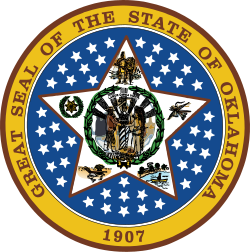Party Recognition
A group of persons may form a recognized political party at any time except during the period between March 1 and November 15 of any even-numbered year if the following procedure is observed:
1. Notice of intent to form a recognized political party must be filed in writing with the Secretary of the State Election Board at any time except during the period between March 1 and November 15 of any even-numbered year;
2. After such notice is filed, petitions seeking recognition of a political party, in a form to be prescribed by the Secretary of the State Election Board, shall be filed with such Secretary, bearing the signatures of registered voters equal to at least 3% percent of the total votes cast in the last General Election for Governor. Each page of such petitions must contain the names of registered voters from a single county. Petitions may be circulated a maximum of one year after notice is filed, provided that petitions shall be filed with the Secretary no later than March 1 of an even-numbered year. Such petitions shall not be circulated between March 1 and November 15 of any even-numbered year; and
3. Within thirty days after receipt of such petitions, the State Election Board shall determine the sufficiency of such petitions. If such Board determines there are a sufficient number of valid signatures of registered voters, the party becomes recognized under the laws of the State of Oklahoma with all rights and obligations accruing thereto.
If a party's nominee for Governor, or nominees for electors for President and Vice President, fail to receive at least 2.5% percent of the total votes cast for said offices in the general election, that party's recognition automatically ceases, and that party must once again go through the process of gaining recognition. [3]
